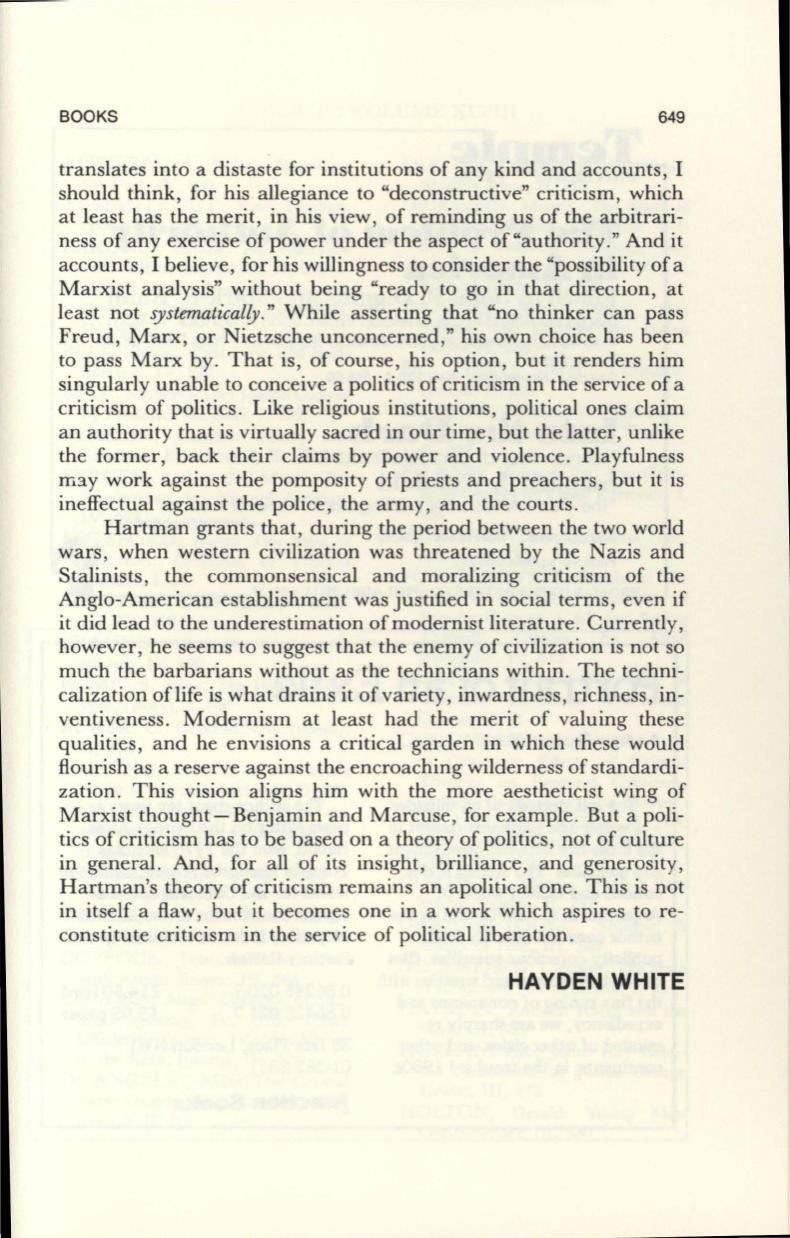
BOOKS
649
translates into a distaste for institutions of any kind and accounts, I
should think, for his allegiance to "deconstructive" criticism, which
at least has the merit, in his view, of reminding us of the arbitrari–
ness of any exercise of power under the aspect of "authority." And it
accounts, I believe, for his willingness to consider the "possibility of a
Marxist analysis" without being "ready to go in that direction, at
least not
systematically."
While asserting that "no thinker can pass
Freud, Marx, or Nietzsche unconcerned," his own choice has been
to pass Marx by. That is, of course, his option, but it renders him
singularly unable to conceive a politics of criticism in the service of a
criticism of politics. Like religious institutions, political ones claim
an authority that is virtually sacred in our time, but the latter, unlike
the former, back their claims by power and violence. Playfulness
ITi::ty work against the pomposity of priests and preachers, but it is
ineffectual against the police, the army, and the courts.
Hartman grants that, during the period between the two world
wars, when western civilization was threatened by the Nazis and
Stalinists, the commonsensical and moralizing criticism of the
Anglo-American establishment was justified in social terms, even if
it did lead to the underestimation of modernist literature. Currently,
however, he seems to suggest that the enemy of civilization is not so
much the barbarians without as the technicians within. The techni–
calization of life is what drains it of variety, inwardness, richness, in–
ventiveness. Modernism at least had the merit of valuing these
qualities , and he envisions a critical garden in which these would
flourish as a reserve against the encroaching wilderness of standardi–
zation. This vision aligns him with the more aestheticist wing of
Marxist thought-Benjamin and Marcuse , for example. But a poli–
tics of criticism has to be based on a theory of politics, not of culture
in general. And, for all of its insight, brilliance, and generosity,
Hartman's theory of criticism remains an apolitical one. This is not
in itself a flaw , but it becomes one in a work which aspires to re–
constitute criticism in the service of political liberation.
HAYDEN WHITE


